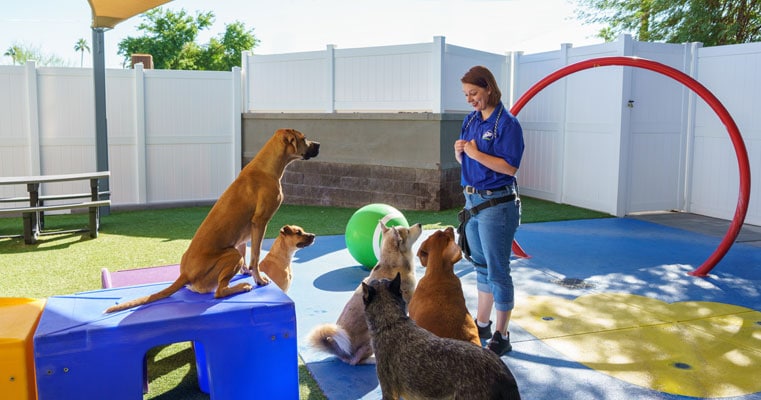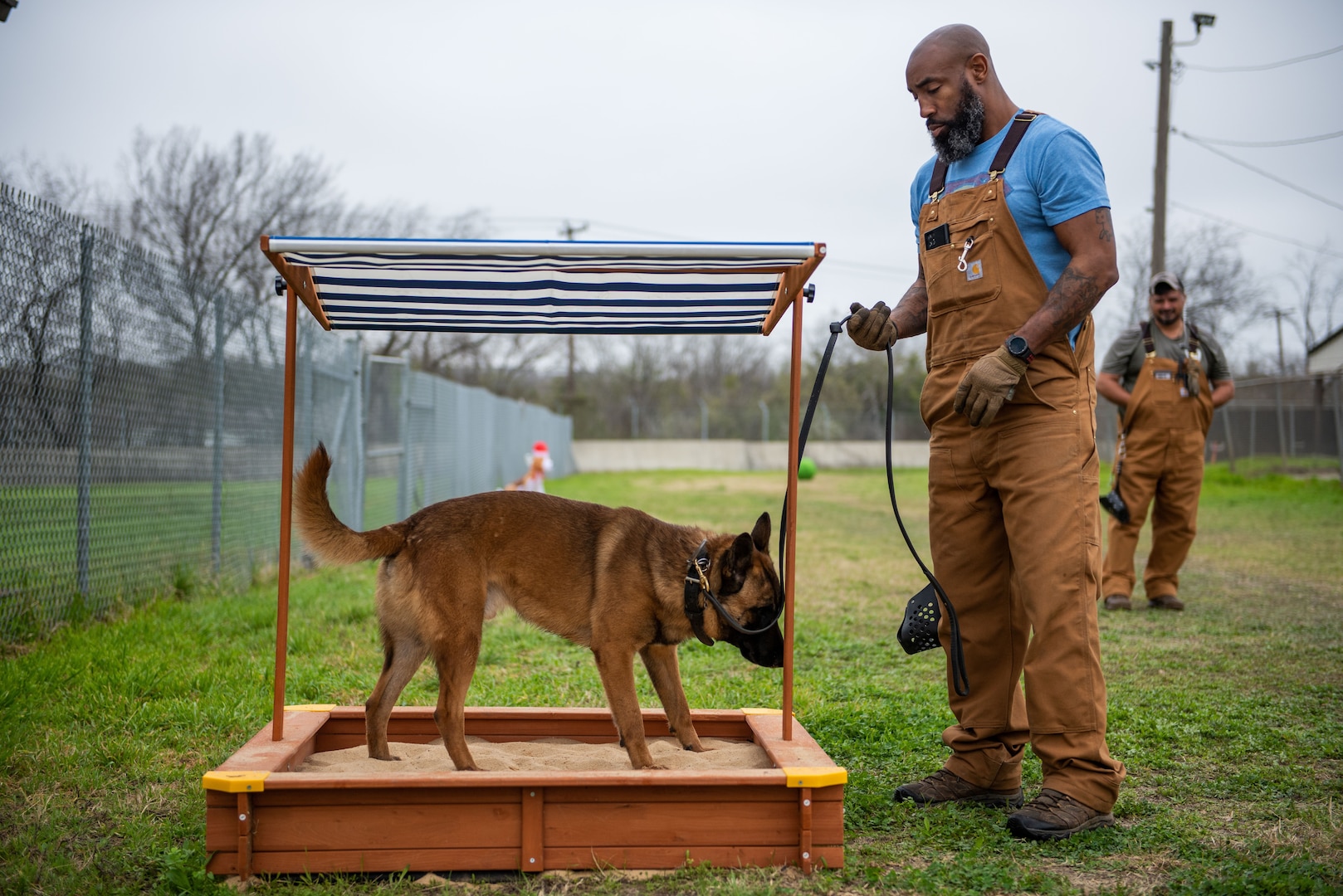Positive Reinforcement in Dog Training: A Humane Approach to Success
Positive Reinforcement in Dog Training: A Humane Approach to Success
Blog Article
Transform Your Pet dog's Behavior With Proven Training Techniques
Transforming your dog's habits requires a nuanced understanding of their private attributes and demands, as well as the application of tried and tested training approaches. Consistency in your training strategy not just boosts obedience however also promotes a deeper bond of trust and regard in between you and your animal.
Recognizing Dog Behavior
Comprehending pet dog actions is vital for efficient training and communication in between human beings and their canine companions. Canines, as social pets, exhibit a series of behaviors influenced by genes, environment, and experiences - Dog training. Identifying these habits aids proprietors customize their training approaches to fulfill the specific requirements of their dogs
Secret facets of pet dog habits consist of body language, vocalizations, and social interactions. Additionally, socialization plays a vital function in forming actions; dogs that engage positively with various other animals and different individuals are generally much more well-adjusted and versatile.
Furthermore, acknowledging tension signals-- such as panting, pacing, or avoidance habits-- can stop acceleration into much more severe issues. Owners who are in harmony with their pet's actions can develop a nurturing and secure environment, cultivating depend on and enhancing the training process. Inevitably, a deep understanding of canine habits lays the structure for a harmonious connection and efficient training results, guaranteeing both pet dogs and their proprietors flourish with each other.
Positive Reinforcement Strategies
Favorable support methods are commonly acknowledged as one of the most efficient techniques for training dogs, promoting a favorable discovering atmosphere. This approach involves satisfying wanted behaviors with deals with, appreciation, or play, thereby motivating the pet dog to repeat those habits. Unlike punitive techniques, favorable support develops depend on and strengthens the bond between the pet dog and the trainer.
To carry out favorable reinforcement efficiently, timing is vital. Rewards ought to be provided right away complying with the desired habits to help the canine make the link. Uniformity is also important; using the same commands and benefits helps the pet dog recognize what is anticipated. Additionally, varying the incentives can keep the canine engaged - Dog training. As an example, alternating in between treats, playthings, and spoken appreciation can maintain rate of interest and inspiration.
It is necessary to keep in mind that favorable support is not about bribery; instead, it is about enhancing great behavior. Gradually, as the pet finds out to link details actions with positive end results, the frequency of rewards can be slowly minimized, transitioning to spoken praise or recurring incentives. This method not just urges obedience but additionally advertises a certain and delighted dog, making training a much more enjoyable experience for both parties included.
Resolving Usual Issues
Resolving typical problems throughout dog training is important for making sure a unified and successful relationship in between the dog and its owner. Numerous canine proprietors come across behavior difficulties, such as too much barking, jumping, and leash drawing. Understanding the origin triggers of these actions is essential for reliable training.
To reduce this, provide sufficient physical exercise, mental stimulation, and opportunities for social communication with both humans and various other pet dogs. Educating the dog to sit upon welcoming can redirect this habits favorably.
Chain pulling is an additional common problem, regularly resulting from a dog's enthusiasm to discover. Utilizing correct chain taking care of methods, incorporated with training protocols that encourage loose-leash walking, can substantially improve this actions.
On top of that, problems like resource protecting or splitting up anxiety need tailored techniques. Gradual desensitization and counter-conditioning can be effective in attending to these difficulties. By recognizing and proactively taking care of these common issues, canine owners can promote a more delightful training experience and strengthen the bond with their canine companions.
Consistency in Training

To attain consistency, it is crucial that all participants of the home abide by the exact same training techniques. As an example, using the exact same verbal cues and hand signals makes certain that the dog gets uniform messages. In addition, the timing of improvements and benefits must be regular; instant support increases the likelihood that the pet will certainly connect the behavior with the end result.
Routine technique sessions, coupled with organized timetables for feeding, walking, and playtime, help dogs expect and recognize their setting, making them a lot more receptive to training. Inevitably, uniformity promotes a feeling of security and trust, encouraging pets to discover much more efficiently.
Building a Solid Bond
How can fostering a solid bond between a canine and its proprietor boost the training experience? A solid connection improved count on and regard works as the structure for effective training. When a pet dog really feels news safe in its link with its proprietor, it is more most likely to show positive behaviors and be responsive to finding out. This bond urges the pet dog to engage fully in training sessions, as it sees the owner as a resource of advice and support.
Furthermore, a solid bond facilitates much better interaction. Pets are skilled at reading human cues, and a relying on connection permits clearer signals throughout training. Owners that invest time in building this bond via play, socializing, and positive support produce an atmosphere where canines feel determined and excited to discover.
Furthermore, a reputable connection can minimize stress and anxiety and behavioral problems, as dogs are less likely to act out when they feel recognized and taken care of. Focusing on the development of a solid bond not only enhances the training experience yet additionally contributes to a happier and much more well-adjusted pet dog. Ultimately, the trip of training changes right into a collaborative collaboration, resulting in lasting behavioral improvements.
Verdict

Owners that are attuned to their dog's habits can develop a caring and safe atmosphere, fostering trust fund and boosting the training process. Ultimately, a deep understanding of canine habits lays the structure for a harmonious partnership and efficient training end results, making certain both canines and their owners flourish with each other.
Attending to common problems during dog training is important for ensuring a effective and unified relationship in between the canine and visit the site its owner.Consistency is a keystone of reliable pet dog training, as it develops a clear framework for the dog to recognize assumptions and habits.In verdict, transforming a pet dog's habits through shown training techniques requires an understanding of canine habits, the application of positive support strategies, and an emphasis on uniformity.
Report this page